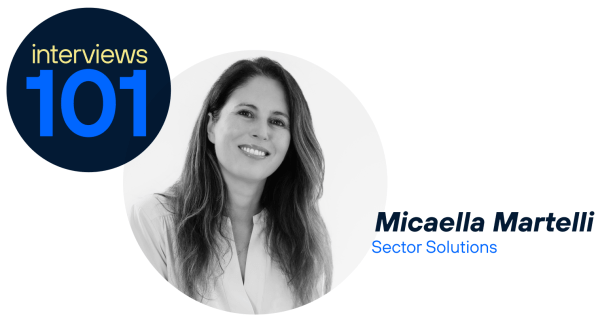The idea of accepting what is happening to us at a given moment helps us to accept what is happening to us, clarifying and amplifying the understanding that we cannot change the facts, but we can change our attitude towards what is happening to us.
How the brain works in response to stimuli
Human beings are emotional beings, their emotional brain is indomitable in the face of our rational brain. We are often immersed in distractions that take us out of focus and alter us emotionally.
It is because of survival that our brain acts, and reacts to the surrounding stimuli in an emotional way, beating reason, in order to respond to what happens to us in an immediate time.
We must take into account that, in work and personal areas, certain problems make us enter this phase of anxiety, and to solve it, we lose focus, as emotion wins and our reason is covered by that “Great Emotional Elephant”, which dominates us, and disables our “Rational Rider”, in those actions that we decide to do when we live a certain experience or circumstance, and that interferes in our actions.
We have to know and understand that, at times, some decisions will take more time than others, and in some cases we will have to evaluate, organise, prioritise and follow up on certain issues, in order to obtain a result. In many of these cases we are overcome by our emotions that want to get out of that place, just for survival, causing anxiety, bad moods and unpleasant emotions, so it is not very reliable what we do through them.
The importance of awareness
But for this it is necessary to become aware of how our attention is at that moment, how we are emotionally, and to identify where we are putting the focus to solve a certain problem, and then, to be able to remember what we did. I interpret this as having self-awareness, and it will be the basis for creating our own habits, that is, to see what things we do out of unconscious habits, and to get out of “automatic” actions.
Changing our habits
Making changes in habits is not easy, they are always accompanied by emotionality, which is why it is necessary to know how to manage our emotions.
When one has a habit of dispersing, for example, one should pay attention to what distracts one and try to change it for another, because bad habits are not easily removed, they can only be replaced. The issue of writing down what we want to work on or change will help us to consolidate it in our mind, that is to say, to make it part of “our rational rider”, and to evaluate our behaviour or our attitude. For this it is necessary not to do things by impulse or emotion. Many times, we don’t even have a record of them.
That is why the repetition of good habits creates willpower, helping to build new habits, so that our “rational rider” becomes stronger than the “emotional elephant”. This way we can manage those tasks that we don’t like, exercising our willpower and keeping our motivation and focus on what we have to do, avoiding procrastination, when we leave at the last minute, presentations that have to be done in a certain time, causing us stress effects when we have to solve them.
In this way, we will be controlling emotion, with slow and deliberate reasoning, and we will focus on what we really want to do, in a given time frame.
The importance of setting goals
On the other hand, it is necessary to set small goals in the beginning, which is in accordance with our rational rider we have at that moment. The willpower should be commensurate with the chosen goal. For large goals, large willpower will be necessary and as a result, we must have well established riders to help us and keep us motivated to achieve the goal. otherwise, we will set our sights on an impossible goal and our rider, i.e. our willpower, will give up in the middle of the attempt.
You have to develop willpower by changing habits, and then depending on how that willpower is, choose your goals.
The difference between motivation and will
It is necessary to see the difference between motivation and willpower, the first is the initiative to carry out an action and willpower is to maintain this decision over time. I once heard this example that I liked and which says: “Motivation is a candle that we light, and willpower is the flame that stays lit over time. The way we determine not to extinguish its flame despite changing environments is our willpower.
Speaking of goals, it seems appropriate to mention again how we know ourselves, this skill that allows us to realise how we are doing, and then to interpret our attitudes on the day.
Tips for achieving wellbeing
This basis of self-knowledge is formed on five fundamental pillars to achieve wellbeing, as well as being the basis for completing our goals. These are nutrition, good rest, physical activity, meditation, and the emotional management mentioned at the beginning of this article.
First of all, it is important to realise how we feed ourselves, to experience an organic body with energy, the importance of incorporating proteins, fruits, carbohydrates that are the basis of energy and that need to be incorporated into our organism. The importance of breakfast rich in fruits, essential fats and proteins will be to prolong our energy throughout the day. Eating healthy, with a varied menu, and incorporating vegetables, proteins, water intake, and minerals, will give our body enough energy to not feel weak mid-morning, and this will be a reason for distraction by the mere fact of feeling hungry.
Rest is also necessary. Sleep well so that our neurons can regenerate so that our executive functions the next day are optimal, favouring our attention, memory and cellular activities throughout our body.
This stage of sleep is fundamental for the cellular and functional reconstruction of all our vital, emotional and rational organs.
For example, changing the habit of eating dinner earlier, no longer watching a series or film late in the day, as it alters our circadian cycles due to its blue light, and wakes up our brain. This delays the reconciliation of a good rest or makes it difficult to get a good night’s sleep. Having eaten too much, or too close to bedtime, will affect our ability to sleep well.
It is impossible for a person to be effective if they are poorly asleep, as they will not be able to perform with full attention, executive functions, and daily responsibilities.
Physical activity helps us to keep our muscles and bones strong and healthy. The relationship there is with the fat that our body accumulates; if it is in the right measure, it will give better mobility to our joints and vital organs. Bone and muscle density will be in accordance with each age, as well as offering other benefits, for example, strengthening the coronary system, regulating blood pressure, relieving tension and releasing stress from our organism.
There is evidence that after exercise a person can have a healthier mental clarity in decision making and their sense of well-being is optimal.
Stopping to think also plays an essential role in this pillar of well-being: We are all day long wanting to do two things at the same time, multitasking for our brain is impossible, it is necessary to exercise full attention on what we are doing, and deactivating any other stimulus that takes us out of it.
It is true that we can do many things in the course of a working day, but we must pay attention to one thing at a time.
Deactivate notifications that distract us and delay us from our objectives so that we can concentrate and be aware of the present. It has been proven that when we have interruptions it takes us fifteen minutes to get back to the task we were on at the beginning. The mind likes to wander, this term seems to me to be the most appropriate for what I want to express, as it jumps from one thought to another all day long. It is an organ created to think, how can we tell it to shut up?
Trying to exercise mindfulness in what we do is meditation, as this discipline helps us to notice and observe all those disparate thoughts we have. Focusing on the present helps us to focus, be less scattered and more productive in our goals and objectives.
A good walk, a conscious walk, or closing our eyes for a few minutes, focusing our attention on our breathing, will anchor us in the present, and quiet our mind of all that we have to do, with mental ruminations and pessimistic thoughts of an uncertain future.
Knowing this helps us to realise that we can meditate when we are doing only one thing at a time, being aware of what we are doing, not needing more concentration, but full attention on what is in our present.
I also think it is important to highlight that when the tasks are very long and we don’t like them too much, start with small goals, that is to say, start doing them little by little, one by one per day, or in sections, then the time will come when we will have the content in a better state than on the first day. It is not necessary to do everything at the same time, in this way, for our mind, it will not cause it to be overwhelmed, nor will we enter into a state of eternal procrastination, therefore, it will be a way to avoid falling into the mental stress that always has the predilection to show us everything that is missing and not what is done. Always think the worst, and then surely that which we think does not happen.
This is when our mind thinks negative thoughts, and this is when our body suffers as if it were going through it, and it is at this precise moment that stress begins to manifest itself and the feeling of wellbeing is forgotten.
The mind does not distinguish reality from what we think, it believes everything we tell ourselves and this has repercussions in our body, causing illnesses.
Knowing which are these pillars that help us every day to successfully complete our goals, achieving them without harming our wellbeing, with calm and mental health, will make us feel that we are heroes of our purposes.








